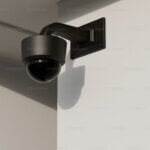Home CCTV Systems in the UK: A Straightforward Guide
Thinking about upgrading your home security? CCTV cameras are a popular and effective option for many UK households. Whether you’re worried about crime or just want more peace of mind, the right system can help protect what matters most.
This guide breaks down the essentials—how CCTV works, the different types available, key features to look for, and how to stay legally compliant in the UK.
What Can CCTV Do for You?
Installing CCTV isn’t just about recording events—it’s about prevention and control. Here’s why more homeowners are investing in surveillance:
- Prevents Crime: Most intruders will think twice when they spot a camera.
- Records Incidents: Useful footage can support police reports and insurance claims.
- Remote Monitoring: View live footage through your smartphone, wherever you are.
- Covers Everyday Concerns: Keep an eye on deliveries, pets, or family members when you’re away.
CCTV System Types: What Are Your Options?
Not all CCTV setups are the same. Here are the three main categories:
Wired Systems
- Delivers stable, high-quality video
- Often installed professionally
- Perfect for long-term, full-home security
Wireless (Wi-Fi) Systems
- Easier to set up, no cables needed
- Flexible placement, great for renters
- Dependent on internet signal strength
Smart CCTV
- Connects to mobile apps and smart home hubs
- Offers cloud storage (usually subscription-based)
- Allows remote access and control
Indoor vs Outdoor Cameras: What’s the Difference?
Outdoor Cameras:
- Weather-resistant
- Often include motion sensors, night vision, or spotlights
Indoor Cameras:
- Compact and discreet
- Ideal for watching specific rooms or checking in on vulnerable people
Features to look for:
- 1080p+ HD video
- Two-way audio
- Real-time notifications
- Cloud and/or local video storage options
UK Law: Using CCTV at Home Legally
If your cameras record areas outside your property (like a street or neighbour’s garden), you must follow the UK GDPR and Data Protection Act 2018.
Basic rules include:
- Put Up Signs: Make sure it’s clear that CCTV is in use
- Limit Usage: Use footage only for home security purposes
- Respect Privacy: People have a right to request any footage they appear in
- Manage Footage Properly: Don’t keep videos longer than necessary
If your system captures only your private property, these laws don’t apply—but it’s still wise to follow good privacy practices.




